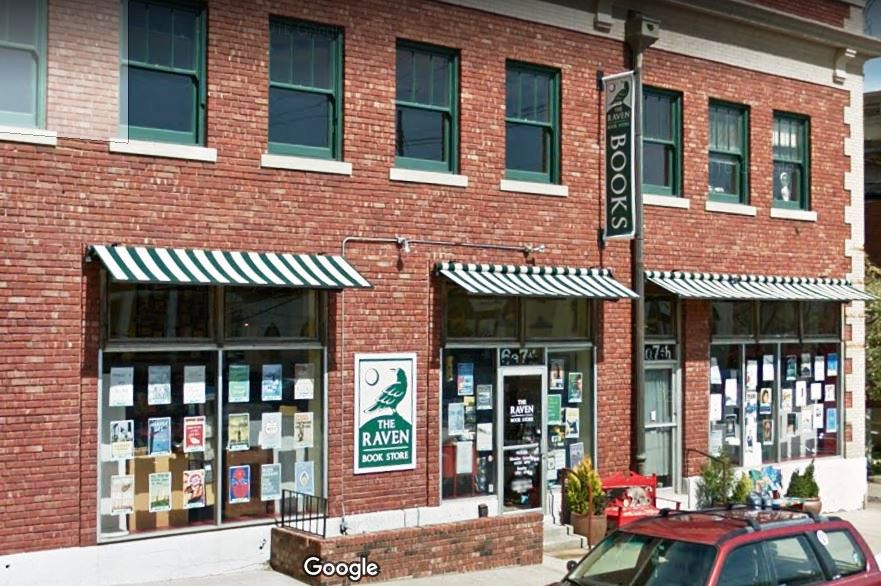Yesterday, on Twitter, Raven Book Store, Lawrence, Kan., posted this letter to @JeffBezos “from a small independent bookstore in the middle of the country”:

Last Wednesday a customer bought a stack of books from us. Right before he left, he asked me, “what parts of your business are affected by Amazon?” I blurted out, “every part.” I had never articulated this before, but it’s true. I know I’m not alone in saying this, and not just among bookstores, either. Your business has an unfair impact on every retail small business in America. I’m writing you to try to illustrate just how many people your business affects in a negative way.
Let’s start with books, because that’s where we overlap and books are my bread and butter. Correct me if I’m wrong, but it certainly seems like the book part of your business is modeled like this: sell books at a loss to hook people into Prime subscriptions, Kindles, Alexas, and other higher-margin products. While this strategy has worked really well for you, it’s totally disrupted everything about the book business, making a low-margins business even tighter. Most dismayingly to us, your book business has devalued the book itself. People expect hardcovers to be 15 bucks and paperbacks to be under 10. Those margins are a nightmare for our bottom line, of course, but they also cheapen the idea of the capital-B Book. There’s already enough happening to cheapen the idea of truth, research, and careful storytelling. We’re dismayed to see the world’s biggest book retailer reflecting that frightening cultural shift by de-valuing books.
This isn’t just about business competition to us. We wish it was! We like business competition, we think it’s healthy. But the way you’ve set things up makes it impossible to compete with you. Often the tech and e-commerce world brags about “disrupting” old ways of doing things with new, sleeker, more efficient tricks. But we refuse to be a quaint old way of doing things, and we are not ripe for disruption. We’re not relics; we’re community engines. We create free programming. We donate gift certificates to charity silent auctions. We partner with libraries and arts organizations. That stuff might seem small to someone aiming to colonize outer space, but to us and our community it’s huge. Our booksellers are farmers, authors, activists, artists, board members, city council representatives. For so many places, the loss of an indie bookstore would mean the loss of a community force. If your retail experiment disrupts us into extinction you’re not threatening quaint old ways of doing things. You’re threatening communities.
When I taught high school English, we did a business letter unit. Part of what I taught was to make sure every business letter has some kind of request so it’s not a waste of time or paper. So, what to request from you? Some of my peers want to break your company up. Some of them want to nationalize it. Some of them want it wiped off the earth. I see where they’re all coming from, but I don’t think that’s what I’m after today. I could also request you stop profiting off ICE’s violence, stop enabling counterfeit merchandise, stop fostering a last-mile shipping system that causes injury and death, stop gentrifying our cities, stop contributing to the police state with your doorbell cameras, stop driving your warehouse workers to exhaustion or injury, or so many other things. Perhaps I could just request an explanation of why this chaos and violence is apparently so essential to your strategy.
Or maybe I could request a leveling of the playing field. Small business owners are led to believe that if their idea is good enough, they can grow their business and create more jobs. Yet your company is so big, so disruptive, so dominant, that it’s severely skewed the ability for us to do that. I think a big part of leveling the playing field would mean fair pricing on your part. For our part, we try to level things by being really good at what we do, and being really loud. So we use our platform to try to teach people what’s at stake as your company increases its influence and market share. I think it’s starting to work. I get the feeling that we’re seeing chips in Amazon’s armor. Whenever we share stuff like this, it seems to resonate with our audience. Maybe someday you’ll hear what we have to say. Maybe we can talk about it over pie and coffee at Ladybird Diner across the street, my treat. I’d love to show you around a vibrant community anchored by small businesses, here in Kansas, here on earth. Maybe it’ll help you realize that some things don’t need to be disrupted.
Sincerely,
Danny Caine, Owner
Raven Book Store
Lawrence, Kan.